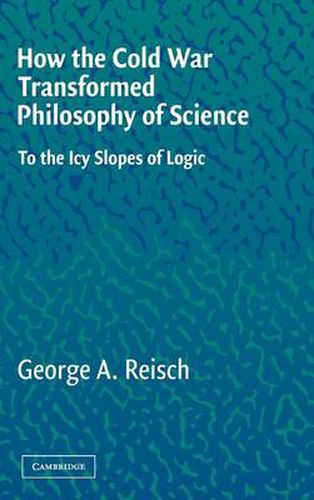Readings Newsletter
Become a Readings Member to make your shopping experience even easier.
Sign in or sign up for free!
You’re not far away from qualifying for FREE standard shipping within Australia
You’ve qualified for FREE standard shipping within Australia
The cart is loading…






This intriguing and ground-breaking book is the first in-depth study of the development of philosophy of science in the United States during the Cold War. It documents the political vitality of logical empiricism and Otto Neurath’s Unity of Science Movement when these projects emigrated to the US in the 1930s and follows their de-politicization by a convergence of intellectual, cultural and political forces in the 1950s. Students of logical empiricism and the Vienna Circle treat these as strictly intellectual non-political projects. In fact, the refugee philosophers of science were highly active politically and debated questions about values inside and outside science, as a result of which their philosophy of science was scrutinized politically both from within and without the profession, by such institutions as J. Edgar Hoover’s FBI. It will prove absorbing reading to philosophers and historians of science, intellectual historians, and scholars of Cold War studies.
$9.00 standard shipping within Australia
FREE standard shipping within Australia for orders over $100.00
Express & International shipping calculated at checkout
This intriguing and ground-breaking book is the first in-depth study of the development of philosophy of science in the United States during the Cold War. It documents the political vitality of logical empiricism and Otto Neurath’s Unity of Science Movement when these projects emigrated to the US in the 1930s and follows their de-politicization by a convergence of intellectual, cultural and political forces in the 1950s. Students of logical empiricism and the Vienna Circle treat these as strictly intellectual non-political projects. In fact, the refugee philosophers of science were highly active politically and debated questions about values inside and outside science, as a result of which their philosophy of science was scrutinized politically both from within and without the profession, by such institutions as J. Edgar Hoover’s FBI. It will prove absorbing reading to philosophers and historians of science, intellectual historians, and scholars of Cold War studies.